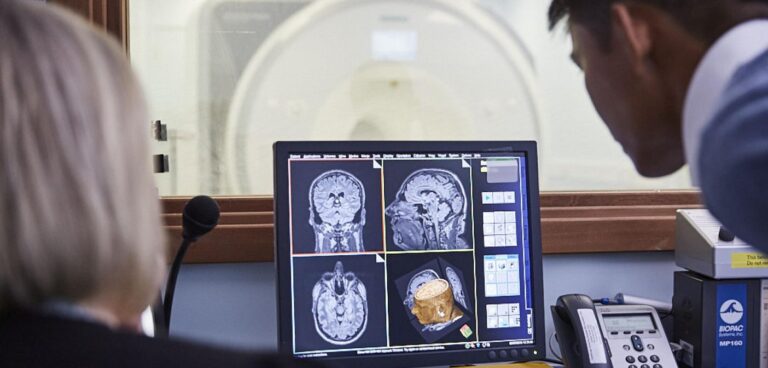Researchers at Cambridge University have developed an AI approach to diagnosing dementia from a single brain scan, as well as providing doctors with information about a person’s prognosis.
Zoe Kourtzi, a researcher at Cambridge University and a fellow of the national centre for AI and data science, The Alan Turing Institute, developed the algorithm and will now work with a team and doctors at Addenbrooke’s Hospital in Cambridge to test the AI approach in a real-world setting.
The AI-powered tool will be piloted with patients coming into the memory clinic with concerns about dementia. It is hoped in the first year of the trial around 500 patients at Addenbrook and other memory clinics across the UK will be involved.
Dr Laura Phipps from Alzheimer’s Research UK, said: “To diagnose dementia today, doctors need to rely on the interpretation of brain scans and cognitive tests, often over a period of time. Machine learning models such as those being developed by Prof Kourtzi could give doctors greater confidence in interpreting scans, leading to a more accurate diagnosis for patients.
“We hope that in future, such approaches will not only improve how current diagnostic techniques are implemented but open the door to revolutionary new approaches to detect the diseases that cause dementia much earlier. This would have a huge impact on people with dementia and their families.”
Kourtzi is also scientific director of Early Detection of Neurodegenerative diseases (EDoN), a global research project Alzheimer’s Research UK are spearheading. It combines digital data from wearable devices to predict who may go on to develop dementia years before symptoms show. Phipps added these wearables collect data including sleep, cognition, fine motor skills and brain activity “to predict diseases like Alzheimer’s 15-20 years before we can today.”









